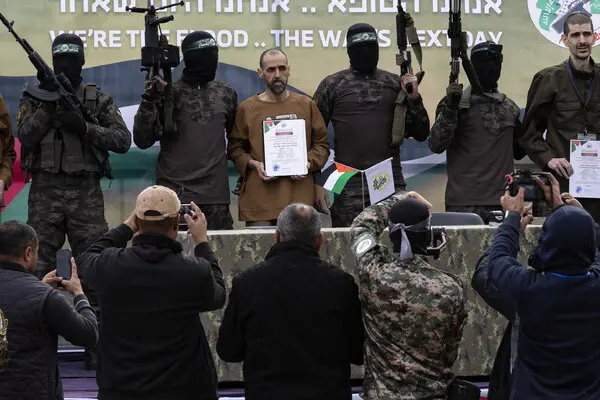More than eight million of the 28 million children in that age group in the United States have received two vaccine shots.

Liam King Koma Sillah, 7, gets vaccinated against Covid-19 on the first day that the vaccine became available for children ages 5-11, at Texas Children’s Hospital last November.
The Food and Drug Administration authorized booster shots of the Pfizer-BioNTech vaccine on Tuesday for children 5 to 11, the latest in a series of actions intended to bolster waning protection against infection from the coronavirus vaccines.
More than eight million of the 28 million children in that age group in the United States have received two vaccine shots, and will now be eligible for the extra dose at least five months after their second shot. The Centers for Disease Control and Prevention is considered highly likely to recommend the booster dose after an advisory committee of outside experts meets to discuss it on Thursday.
That would make all Americans 5 and older eligible for a booster shot. But booster uptake has been much slower than public health experts hoped; many parents have been reluctant to vaccinate children in this age group at all.
Although they have been eligible for Covid shots since November, only 29 percent of 5- to 11- year-olds have received two doses. Another six percent or so have received one shot.
In a statement, Dr. Robert M. Califf, the F.D.A.’s commissioner, said: “While it has largely been the case that Covid-19 tends to be less severe in children than adults, the Omicron wave has seen more kids getting sick with the disease and being hospitalized, and children may also experience longer term effects, even following initially mild disease.”
Some experts have suggested that because children 5 to 11 received a much lower initial dose than older children or adults, they are particularly in need of a booster shot. One study done by New York researchers found that for children 5 to 11, the Pfizer vaccine’s effectiveness against infection fell to 12 percent from 68 percent by four to five weeks after the second dose.
Another C.D.C. study stated that two Pfizer doses reduced the risk of Omicron infection by 31 percent among those 5 to 11, compared with a 59 percent reduction in risk among those 12 to 15. Dr. Peter Marks, the F.D.A.’s top vaccine regulator, said that “emerging data suggest that vaccine effectiveness against Covid-19 wanes after the second dose of the vaccine” in all age groups.
The newly authorized booster dose is the same strength as the first two shots. Pfizer has said its clinical trial data showed that the additional shot produced a strong immune response in the age group, generating neutralizing antibodies against both the Omicron variant and original version of the virus. No new safety signals were observed, according to the company.
Source: nytimes.com



